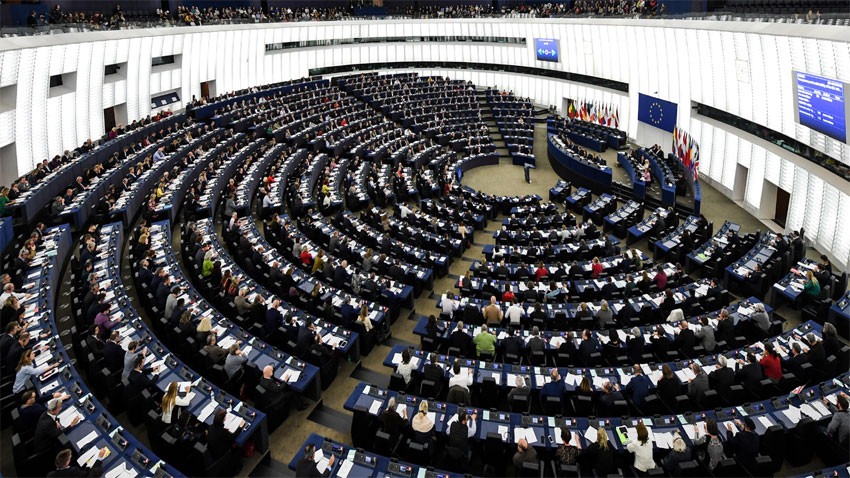
On 11 December the European Parliament approved, by an overwhelming majority - 514 “for”, 107 “against” and 38 “abstained” – a resolution for the accession of Bulgaria and Romania to Schengen. This is, in fact, the fifth such European Parliament call in quite a number of years.
As previously, the MEPs acknowledge the fact that the two countries have met the technical criteria for entry into the Schengen area. Unlike before, the overwhelming majority in the EP thinks that the phasing out of border control – first checks at internal sea and air borders, then checks along internal land borders – is unacceptable because it entails a number of risks and could have a negative impact on the future enlargement of the Schengen area. According to the MEPs, the protracted deferral of the full accession of Bulgaria and Romania to the Schengen area has already had an adverse effect on the two countries, but also on the EU as a whole.
Yet there was no representative of the EU Council present at the debates in the European Parliament, even though the enlargement of the Schengen area is up to that particular body. It is a decision the Council can only make by consensus, and the results of the vote of the resolution show there is no consensus within the EP either. As dramatic events unfold surrounding Brexit, the enlargement of the Schengen area is not a hot item on the EU’s agenda by far. And it is highly unlikely this will happen now that the term of office of the current European Commission, and of most other European institutions, is drawing to an end. In this sense, the debates at the European Parliament on enlarging the Schengen area with Bulgaria and Romania should probably be regarded more as an element of the European Parliament elections campaign. The fact that the EP draft resolution was authored by the President of the Party of European Socialists Sergei Stanishev is suggestive of just such a thing; his comments of GERB’s coalition government have been critical, GERB being from the European People’s Party.
It is probably for all of these reasons that this latest, fifth call by the European Parliament for Bulgaria to be admitted to Schengen is getting a cool reception in Sofia. There is no reaction, as yet, on the Foreign Ministry’s website to yesterday’s events in Strasbourg, and in one of her last comments on the matter, in answer to a journalist’s question in June this year, Foreign Minister Ekaterina Zaharieva says that “in practice, the Schengen area is not working, it hasn’t been working for several years. It is our position that we should protect our external borders, and not wall ourselves up inside.”
Obviously, the Bulgarian government is not expecting the Bulgaria-in-Schengen predicament to be unraveled any time soon, as things now stand that seems most unlikely.
English: Milena Daynova
The coalition We Continue the Change-Democratic Bulgaria (PP-DB) , which came second in the October 27 parliamentary elections, has accepted an invitation for negotiations from the first political force - GERB-SDS. GERB leader Boyko Borissov offers..
A new party called Bulgaria Can (Bulgaria Mozhe) was founded today. Its leaders are the political and economics analyst Kuzman Iliev and the former MP from the Vazrazhdane party, Ivo Ruschev. The aim of the new party is to be an alternative for voters..
GERB leader Boyko Borissov has sent a letter to the We Continue the Change-Democratic Bulgaria (PP-DB) coalition proposing a way out of the political crisis. The information was confirmed by BNR sources. Borissov has proposed that the leader of..

+359 2 9336 661
